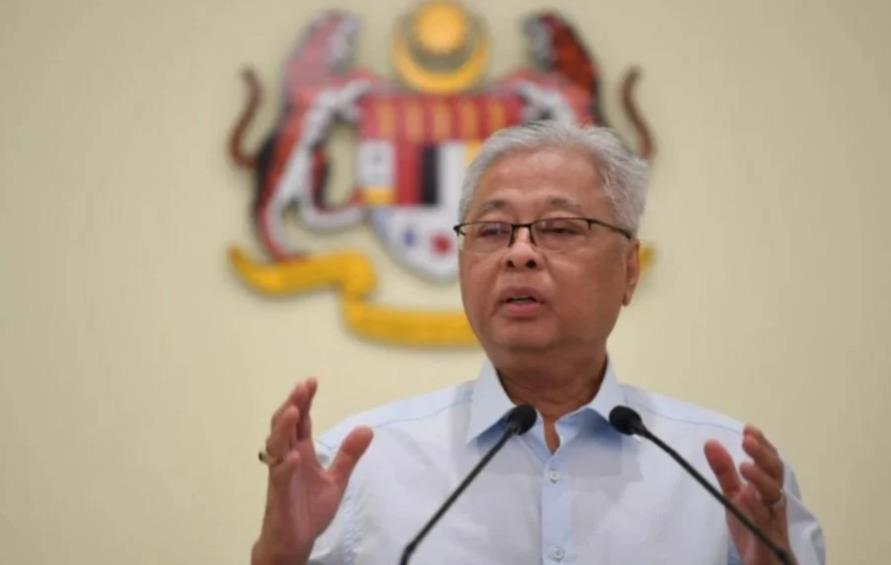Ismail Sabri's appointment to not derail Malaysia's economic, recovery plans: Economists

By Azanis Shahila Aman - August 24, 2021 @ 11:04am
KUALA LUMPUR: The latest political changes are not expected to derail Malaysia's current economic policies, recovery plans and vaccination progress, paving the way for a rebound in gross domestic product (GDP) growth this year, economists said.
With abated political risk, they feel that the local stock market's risk to reward is now tilted to the upside.
Putra Business School business development manager Associate Professor Dr Ahmed Razman Abdul Latiff said the economy and GDP can recover this year provided that the new prime minister can assuage investors' concern by continuing on policies that worked and created impact.
Ahmed Razman said the prime minister should continue to implement the National Recovery Plan (NRP) as well as introduce additional intervention that can address the immediate concerns of affected groups such as SMEs as well as the B40 and M40 groups.
MORE NEWS
Ismail Sabri: Not updating MySejahtera not an offence
Sabah CM congratulates Ismail Sabri on PM appointment
Faizal Azumu congratulates Ismail Sabri on his appointment
Malaysia facing challenges maintaining economic recovery momentum
"But most importantly, he needs to form a functioning Cabinet comprising talented and hardworking ministers. Involvement, feedback and support from all parties should be welcome and taken into consideration in every working committees that tackle the social and economic issues and challenges.
"The finance minister must be helmed by someone who has an extensive background in economics and business, can be a technocrat but not necessarily a banker," he told the New Straits Times.
The Yang DiPertuan Agong announced on August 20 the appointment of Datuk Seri Ismail Sabri Yaakob as the country's ninth Prime Minister.
This followed the resignation of Tan Sri Muhyiddin Yassin and the entire Cabinet on August 16.
United Overseas Bank (Malaysia) Bhd (UOB Malaysia) senior economist Julia Goh said Malaysia has one of the world's highest rates of vaccination rollouts based on vaccination doses administered per 100 people.
"Going by this assumption, we expect most economic and social sectors to reopen by the fourth quarter (Q4) 2021 that paves the way for a rebound in GDP. Positive spillovers from external demand will also provide further impetus to the recovery pace ahead," she added.
UOB Malaysia has kept its full-year GDP outlook of 4.0 per cent and expects the key policy rate to be kept unchanged at 1.75 per cent for the rest of the year.
Hong Leong Investment Bank Bhd (HLIB) said Ismail Sabri's appointment should help assuage investor's concerns on policy continuity as he served as deputy prime minister and defence minister in the previous administration.
"We expect broad policies of his predecessor on vaccination rollout and economic reopening (despite elevated cases) to continue."
HLIB said with abated political risk, the market's risk to reward was now tilted to the upside as Bursa Malaysia's benchmark FBM KLCI's price earnings (PE) valuation was below -1.5 standard deviation.
"We reckon that most of the major near term political risks have subsided with the impasse appearing to be largely resolved. Coupled with further economic reopening measures, market sentiment should recover."
The firm has rolled forward its valuation horizon from end of calendar year 2021 (CY21) to mid-CY22 at an unchanged 15.7 times PE, raising its FBM KLCI target from 1,580 to 1,620 points.
The key index closed 4.40 points or 0.29 per cent to 1,522.43 yesterday.
Kenanga Research said last week, FBM KLCI tumbled as low as 1,494 on Monday before rebounding subsequently to close at 1,518 last Friday, up 12.9 points or 0.9 per cent week-on-week.
After regaining its footing last week, Bursa would probably enter into a consolidation phase ahead, the firm added.
